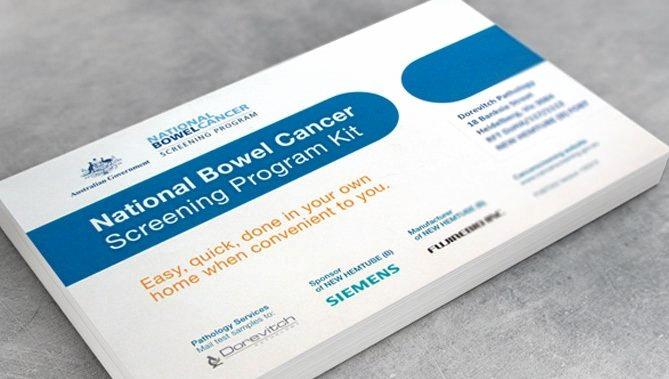LESS than half of eligible Frankston residents are taking part in the national bowel cancer screening program, new figures have revealed.
Dates released by the Australian Institute of Health and Welfare shows that just 45.9 per cent of eligible people are signed up to the cancer screening program. The program sees free screening tests sent to people aged between 50 and 74.
Cancer Council Victoria is pushing for more Frankston residents to get tested for bowel cancer. Cancer Council Victoria cancer screening team manager Clare O’Reilly said it is “important to make sure everyone aged 50 to 74, regardless of language spoken or cultural background, understands the importance of doing their free bowel cancer screening test every two years.”
“About 100 Australians die from bowel cancer each week. Yet if detected early bowel cancer is usually easy to treat. The bowel cancer screening test looks for early warning signs, before symptoms appear, increasing the chances of successful treatment,” she said.
“Overall only 45.9 per cent of eligible people living in Frankston are completing the free test, higher than the state average of 41.3 per cent but still low for a test that saves lives. The test is quick, simple and you can complete it in the comfort of your own home. Cancer screening is an important way to stay healthy for your family.
“The message is simple. Do the test, it could save your life.”
Cancer Council Victoria is working alongside Professor Jon Emery on the GP and nurse engagement component of their campaign. Mr Emery is a professor of primary care and cancer research at the University of Melbourne and medical advisor at Cancer Council Australia.
“With research showing patients are not only delaying the screening test but also actively saying they would talk to their doctor about bowel screening, it is evident GPs can play a key role in lifting screening rates,” Mr Emery said.
“Increasing patient uptake can be as simple as doctors encouraging patients to do the home test, explaining what is involved in the test and dispelling myths, or by sending endorsement letters or text messages to patients who will receive the test.
“The test is quick, simple and clean and we know that after doing the test 77 per cent of people repeat it when next invited, which shows it is not as difficult as they may have initially perceived.”
The campaign will see training delivered to Frankston general practices to encourage promotion of bowel cancer screenings to eligible patients.
More information on the bowel cancer screening campaign at bowelcancer.org.au

